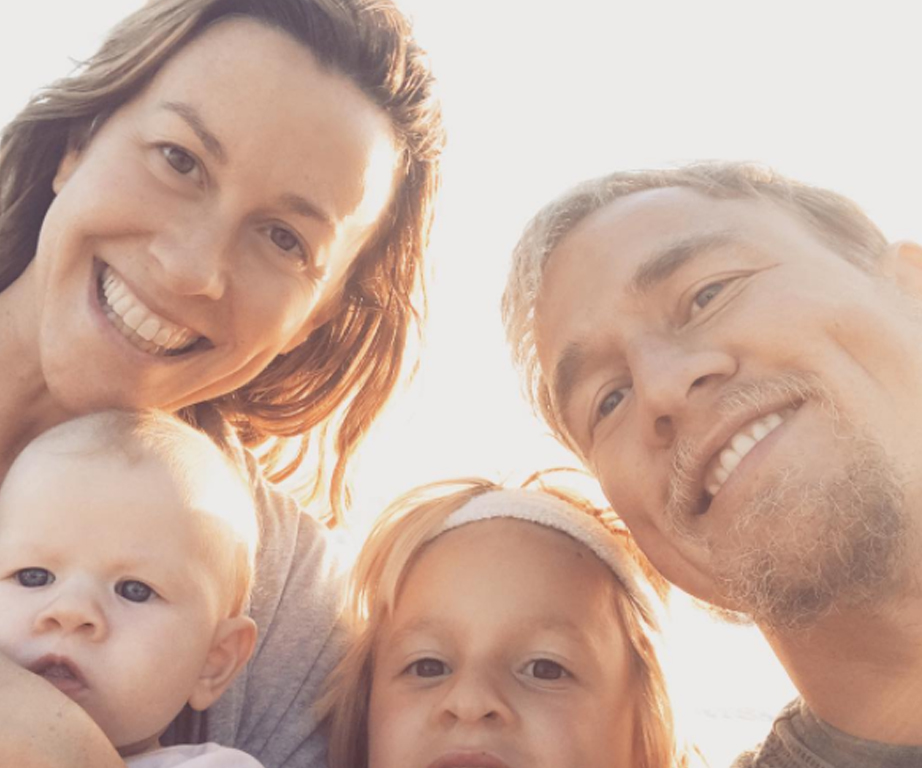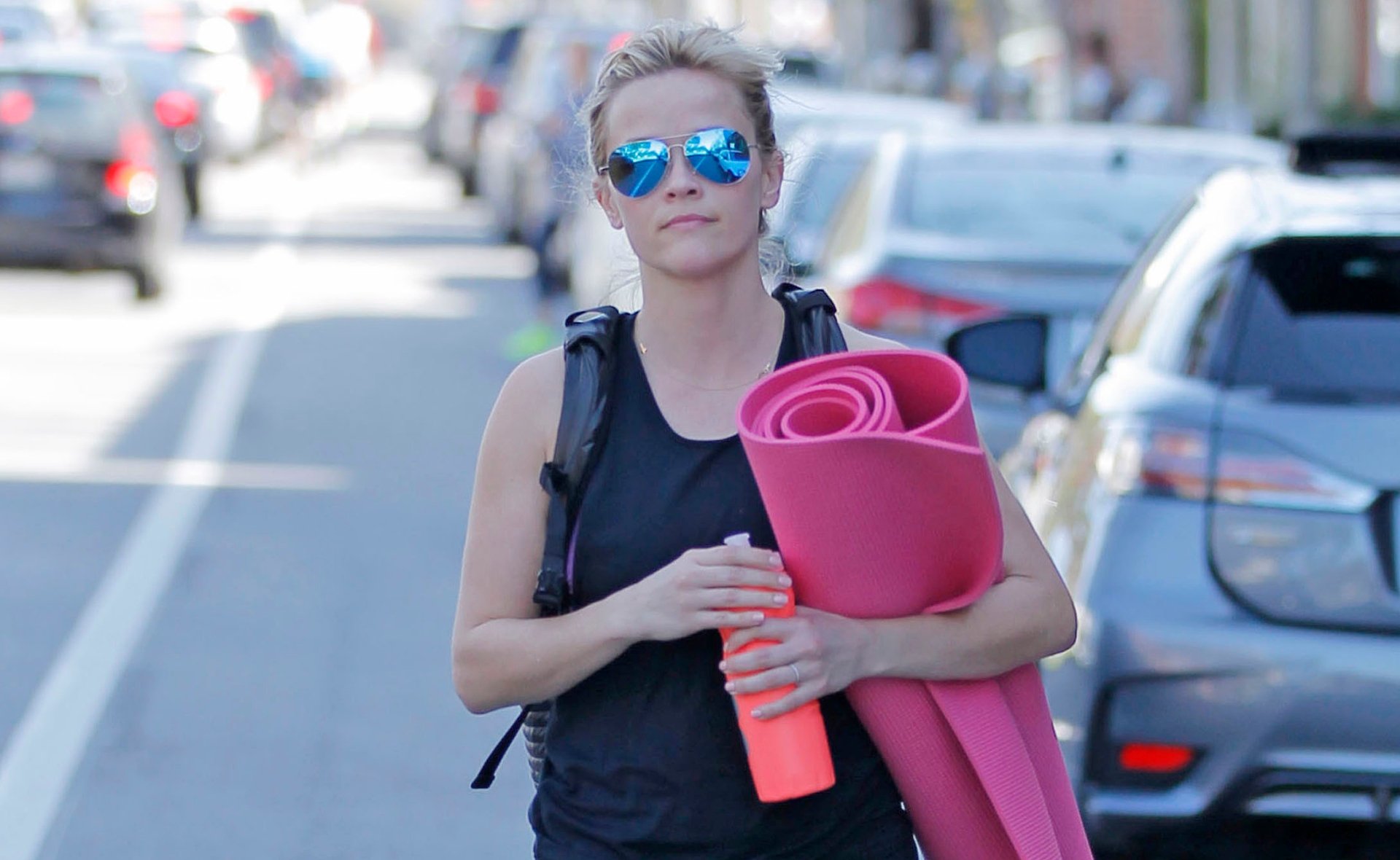Did you know that post-natal depression impacts as many as 1 in 7 mothers and 1 in 10 fathers in Australia alone?
Well, not only that, but according to Better Health Victoria, up to 80 per cent of women are likely to experience a bout of the baby blues in the first two weeks after giving birth.
Such is the case for Jessica Rowe, who says that almost two months after bringing her now-10-year-old daughter, Allegra, into the world, she knew her feelings of loneliness, worry and isolation were not ‘normal’ for someone who had long-wanted a child.
Here, in doing her part to raise awareness about the importance of R U OK Day, Jessica details the rocky terrain she navigated during the two times she had post-natal depression, and what she did to embrace her mental illness.
I still have my moments. I take antidepressants every day and I don’t have any shame in saying that. It’s something I’ve had to do to keep myself on an even keel, and I really began that when I realised I had post-natal depression after the birth of my first child, Allegra.
When Allegra was around six weeks of age, I knew that what I was experiencing was different to the sorts of emotions a new mum would traditionally go through.
I felt very anxious, I had panic attacks – I’d never had panic attacks before – and I felt like there was a pane of glass between me and the rest of the world. I knew how lucky I was; I had a beautiful husband, my longed-after baby girl, who we’d gone through IVF to have.
Looking from the outside, people would’ve thought, “She’s got it all!”
For me, what happened… the anxiety, the panic attacks, the destructive thoughts I was having at the time, they weren’t going away – they were getting worse. I really felt like I was losing my mind.
I knew I was in real trouble when I got to a point where all of the carving knives in our kitchen… I wrapped them up in newspaper and threw them in the bin because I was so fixated on these sharp knives.
I knew I would never do anything with them, but the thoughts going through my head were so terrifying that I remember thinking, “If I wrap them up and put them in the garbage bag at night, those thoughts would go away.”
But they didn’t. They got worse.
Because I was new to this whole motherhood thing, I felt so… isolated.
I questioned myself: “What is wrong with me? Why can’t I do this? I’ve always been so capable. I can’t even feed my baby. I must be the worst mother in the world.”
I got to a point where I knew I couldn’t keep pretending.
We all wear a mask at times. A mask that shows us as perfect; that we have it all together. Sometimes you need to wear that mask, but sometimes, you also need to drop it. To be vulnerable. To ask people for help when you need it.
For me, I knew I could go to my mum. My mum has bipolar disorder, which is a very different illness to post-natal depression, but I knew my mum would understand.
She made me promise I would tell [my husband] Peter [Overton] and talk to my doctor. So I did.
That conversation I had with Petey was one the hardest things I’ve ever done. I was so afraid of telling him; by telling him, I thought I was letting him down, letting our beautiful baby girl down and letting our brand new family down. I was afraid what he would think.
I remember, I cooked his favourite meal – schnitzel! That’s one thing I can cook… but now I do it with a panko crumb [laughs] – and had some rocky road in the fridge…. We ate dinner and sat in front of the telly, but I just kept putting the conversation off.
Petey, who calls me Pussycat, turned to me and said: “Oh, Pussycat, this is fantastic. Everything is just perfect.”
It was then that I had to tell him. “No,” I said, “Everything isn’t perfect. I’m frightened; I’m really afraid I have post-natal depression.”
After that, I saw a psychiatrist and even then I was still trying to keep up appearances. I put on my pink lippy and Zimmermann leopard-print dress, swanned into her office and sat down. My psychiatrist then looked at me and said, “You can stop pretending now.”
I told her everything, even though I did feel as though she might send me to hospital and take my baby away from me. But she said to me, “That’s normal. What you have told me is normal… for someone who has post-natal depression.”
I asked her then what I should do to get better. She said, “We can do lots of talking. Or, there’s medication.”
I said: “Great! I want medication!”
We laugh now because she says she has never had a patient so eager to take the medication option [laughs]. Normally, she says she has to convince people! But, for me, because I’d seen what medication had done for my mum and had saved her on countless occasions, because I’d seen that, I wasn’t afraid.
I remember three weeks after starting my anti-depressants, I was standing in our front garden. Allegra was having her lunchtime sleep when suddenly I could smell the gardenias in our front garden.
They’d been flowering for a while but I hadn’t smelt that smell for such a long time. For me, that was the beginning of returning to me. It was like I could feel this lovely change in the breeze; I could feel a return of hope.
Jessica spoke to Yours magazine and Bauer Media as part of R U OK Day. If you, or someone you know, are going through a tough time and need to talk to someone, call beyond blue on 1300 224 636 or visit their website www.beyondblue.com.au.




